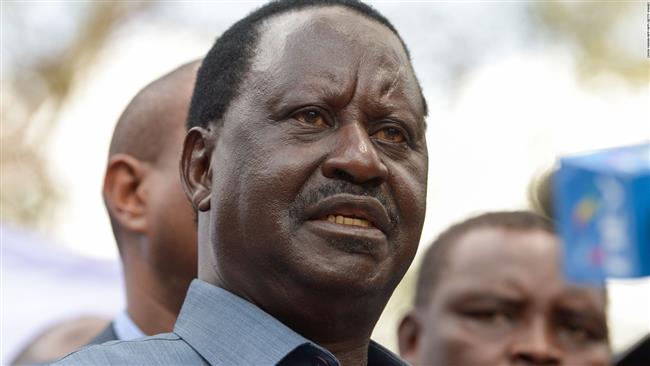Taking the last kicks of a dying horse: Kenya’s Odinga vows to continue disobedience
Kenya’s opposition leader Raila Odinga has censured a rerun of presidential election in the country as coronation rituals for the ruling government, saying he would fight on and maintain a momentum of civil disobedience in the country.
Addressing his supporters in his western stronghold of Kisumu, Odinga said on Tuesday that the result of last week’s election, which gave President Uhuru Kenyatta a landslide win, was a sham.
“This election must not stand. If allowed to stand, it will make a complete mockery of elections,” said the 72-year-old opposition leader.
Odinga led a petition in early August that saw the results of the original presidential election annulled by Kenya’s Supreme Court. He then pulled out of the rerun, set for October 26, saying irregularities that enabled the government to tamper with the results had persisted.
Kenyatta’s government went on to hold the vote despite mass boycotting and street protests by Odinga’s supporters. The election watchdog in Kenya has also warned that the repeat of the vote could not be fair.
In his speech, the first since the Thursday vote, Odinga said without change, “elections will become coronation rituals.”
He pledged to transform his National Super Alliance (NASA) coalition into “a resistance movement” that would lead a campaign of “civil disobedience” in Kenya.
“If there is no justice for the people, let there be no peace for the government,” Odinga said during the speech while laying out plans for “economic boycotts, peaceful processions, picketing and other legitimate protests.”
Kenyatta, who won the rerun with 98 percent, said on Monday that the recent election victory was a vindication of his original triumph. The incumbent president had strongly protested the overturning of the results of the August election, which was a first of its kind in the entire Africa.
Odinga’s pledges for launching a fierce anti-government campaign have sparked fears that Kenya, a major economic power in Africa and a West’s ally in the region, could be hit by widespread ethnic violence. More than 1,100 people were killed in clashes and street confrontation that followed the presidential election in 2007.
Source: Presstv




